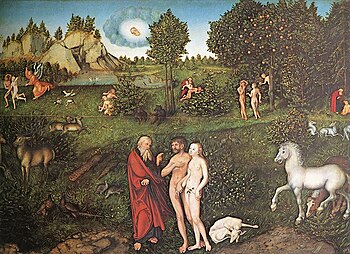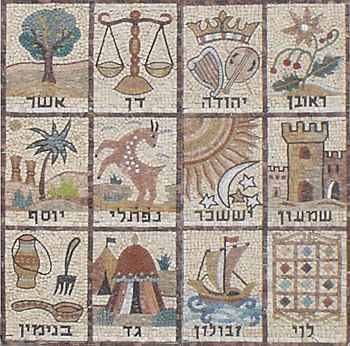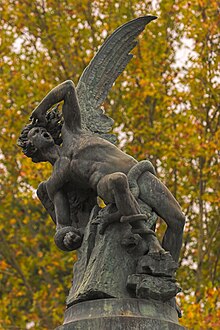When God created everything, all things where like He wanted it and every time when He saw that it was good He continued creating something else. In this way the earth came to put forth living souls according to their kinds, domestic animal and moving animal but also wild beast of the earth according to its kind.
Genesis 1:24-25 MKJV And God said, Let the earth bring forth the living creature after its kind, cattle, and creepers, and its beasts of the earth after its kind; and it was so. (25) And God made the beasts of the earth after its kind, and cattle after their kind, and all creepers upon the earth after their kind. And God saw that it was good.

In the same way God decided to make man in His image according to His likeness. He allowed man to have those other living creatures in subjection. He wanted them to be fruitful and become many, meaning that the earth would be filled with human beings living in unison with each other and with their Divine Creator.
Genesis 1:26-28 MKJV And God said, Let Us make man in Our image, after Our likeness. And let them have dominion over the fish of the sea, and over the fowl of the heavens, and over the cattle, and over all the earth, and over all the creepers creeping on the earth. (27) And God created man in His image; in the image of God He created him. He created them male and female. (28) And God blessed them. And God said to them, Be fruitful, and multiply and fill the earth, and subdue it. And have dominion over the fish of the sea and over the fowl of the heavens, and all animals that move upon the earth.
From the sixth day onward man was part of the universe and could created their earthen vessels, unfolding new life. But like clay pots are characteristically inadequate and vulnerable, man showed also to be so vulnerable, or susceptible, open to temptation, persuasion, censure, etc.. His vulnerability making man exposed to everything around him, having a soft spot, his effectiveness depending on his own free choices.
God had placed man in a safe environment, where man did not have to worry. A garden where there was nothing which could endanger man or would bring man open to attack or damage.
God had given all green vegetation for food except the fruit of one tree.
Genesis 1:29-30 MKJV And God said, Behold! I have given you every herb seeding seed which is upon the face of all the earth, and every tree in which is the fruit of a tree seeding seed; to you it shall be for food. (30) And to every beast of the earth, and to every fowl of the heavens, and to every creeper on the earth which has in it a living soul every green plant is for food; and it was so.
The man made out of dust formed from the ground could use everything for him from that ground. After the water came down from heavens, watering the entire surface of the ground, out of it grew every tree desirable to one’s sight and good for food. As such there was also the tree of life in the middle of the garden and the tree of the knowledge of good and bad.
Genesis 2:7-9 MKJV And Jehovah God formed man of the dust of the ground, and breathed into his nostrils the breath of life; and man became a living soul. (8) And Jehovah God planted a garden eastward in Eden. And there He put the man whom He had formed. (9) And out of the ground Jehovah God caused to grow every tree that is pleasant to the sight, and good for food. The tree of life also was in the middle of the garden, and the tree of knowledge of good and evil.
The man was settled in that beautiful Garden of Eden to cultivate it and to take care of it. This means God trusted him to make something good out of it. Though having him placed there God also laid a command upon the man, him to be allowed to eat from every tree to satisfaction, but as for the tree of the knowledge of good and bad he was not allowed to eat from. God also warned him that in the day he would eat from it he was positively to die.
Genesis 2:15-17 MKJV And Jehovah God took the man and put him into the garden of Eden to work it and keep it. (16) And Jehovah God commanded the man, saying, You may freely eat of every tree in the garden, (17) but you shall not eat of the tree of knowledge of good and evil. For in the day that you eat of it you shall surely die.
God also found it was not good for man to continue to himself and therefore had made him a helper, as a complement of him.
Genesis 2:18-25 MKJV And Jehovah God said, It is not good that the man should be alone. I will make a helper suitable for him. (19) And out of the ground Jehovah God formed every animal of the field and every fowl of the air, and brought them to Adam to see what he would call them. And whatever Adam called each living creature, that was its name. (20) And Adam gave names to all the cattle, and to the birds of the air, and to every animal of the field. But there was not found a suitable helper for Adam. (21) And Jehovah God caused a deep sleep to fall on Adam, and he slept. And He took one of his ribs, and closed up the flesh underneath. (22) And Jehovah God made the rib (which He had taken from the man) into a woman. And He brought her to the man. (23) And Adam said, This is now bone of my bones and flesh of my flesh. She shall be called Woman because she was taken out of man. (24) Therefore shall a man leave his father and his mother, and shall cleave to his wife and they shall be one flesh. (25) And they were both naked, the man and his wife; and they were not ashamed.

She noticing that tree of which God had said not to eat, questioned if God had really said it to protect them, avoiding death to death, whatever this could mean (because they had no idea at all of pain or death), or because God did not want them to have the same knowledge He had. She started wondering if she would eat of its fruit she could not receive the same knowledge or understanding and powers as God did have.
So her doubting thoughts about God‘s honesty is presented in the third chapter of Moses book as a creeping hissing in the mind, like a creeping snake or serpent, because that animal proved to be the most cautious of all the wild beasts of the field that Jehovah God had made.
Genesis 3:1 MKJV Now the serpent was more cunning than any beast of the field which Jehovah God had made. And he said to the woman, Is it so that God has said, You shall not eat of every tree of the garden?
She wondered why she was not allowed to eat form its fruit nor to touch it and doubted God’s integrity.
Genesis 3:2-3 MKJV And the woman said to the serpent, We may eat of the fruit of the trees of the garden. (3) But of the fruit of the tree which is in the middle of the garden, God has said, You shall not eat of it, neither shall you touch it, lest you die.
Her thoughts told her it was ridiculous that she would die. On the other hand she became more convinced that on the day she would eat from that tree her eyes would go open further and she would become like God. This attracted her so much see wanted very much to eat from that fruit which would give her the same powers as God.
Genesis 3:4-6 MKJV And the serpent said to the woman, You shall not surely die, (5) for God knows that in the day you eat of it, then your eyes shall be opened, and you shall be as God, knowing good and evil. (6) And when the woman saw that the tree was good for food, and that it was pleasing to the eyes, and a tree to be desired to make wise, she took of its fruit, and ate. She also gave to her husband with her, and he ate.
Having pulled her husband too in her adventure of opposing God’s command, she not only became herself an adversary of God but made man an accomplice. As an abettor Adam now had also to bear the consequences of his act. He still had the choice not to eat from that fruit and to keep faithful to God. But he made himself an accessory of Eve doing an act against God’s Wishes.
As accessory the 1st man contributed to or aided an activity or process in a minor way; subsidiary or supplementary to Eve’s adversary against God. In this way his relationship with God also became damaged, because in a certain way he gave higher value to his relationship with Eve than with God.
+
Preceding articles
Coming to the creation of human beings in the image of God
Man in the image and likeness of the Elohim #8 The Formation of woman #1
Man in the image and likeness of the Elohim #9 The Formation of woman #2
A multifold of elements in creation and a bad choice made
Genesis – Story of creation 6 Genesis 3:13-24 Enmity and curse
First mention of a solution against death 1 To divine, serpent, opposition, satan and adversary
First mention of a solution against death 2 Harm or no harm and naked truth
First mention of a solution against death 3 Tempter Satan and man’s problems
Forbidden Fruit in the Midst of the Garden 1
Forbidden Fruit in the Midst of the Garden 2
Forbidden Fruit in the Midst of the Garden 3
Forbidden Fruit in the Midst of the Garden 4
What others think about the tree of knowledge of good and evil
++
Additional reading
- An anarchistic reading of the Bible (2)—Creation and what follows
- Trusting, Faith, calling and Ascribing to Jehovah #3 Voice of God #1 Creator and His Prophets
- The 1st Adam in the Hebrew Scriptures #8 Looking for the 2nd Adam
- The Seed Of The Woman Bruised
- Jesus begotten Son of God #10 Coming down spirit or flesh seed of Eve
- Sayings of Jesus, what to believe and being or not of the devil
- A question to be posed
- Has the Bible’s Garden of Eden been found — and restored
- A promise given in the Garden of Eden
- Around pre-existence of Christ
- Because men choose to go their own way
- Where does Satan lives?
- Relating to God is it possible
+++
Further reading
- ‘In the Beginning God’
- Creation: God At Work
- Genesis 1-2 The Mystery Myth
- Genesis 1-11 Overview
- Nehemiah 9:6 …thou hast made heaven…
- How Did Humanity Become Like God ‘Knowing Good and Evil’?
- Adam & Eve: Legends of The Fall
- Snake Dragon
- Magnificent, She
- The creation of Original Sin
- The Faulty Foundations of Faith Alone – Part 2: Original Sin?
- Dyana, age 18
- Everything is dancing the wonder of god
- What We Need
- ‘Take And Eat’ Brought Sin, In Christ It Bestows Salvation
- Methodius on free will and evil.
+++





































































